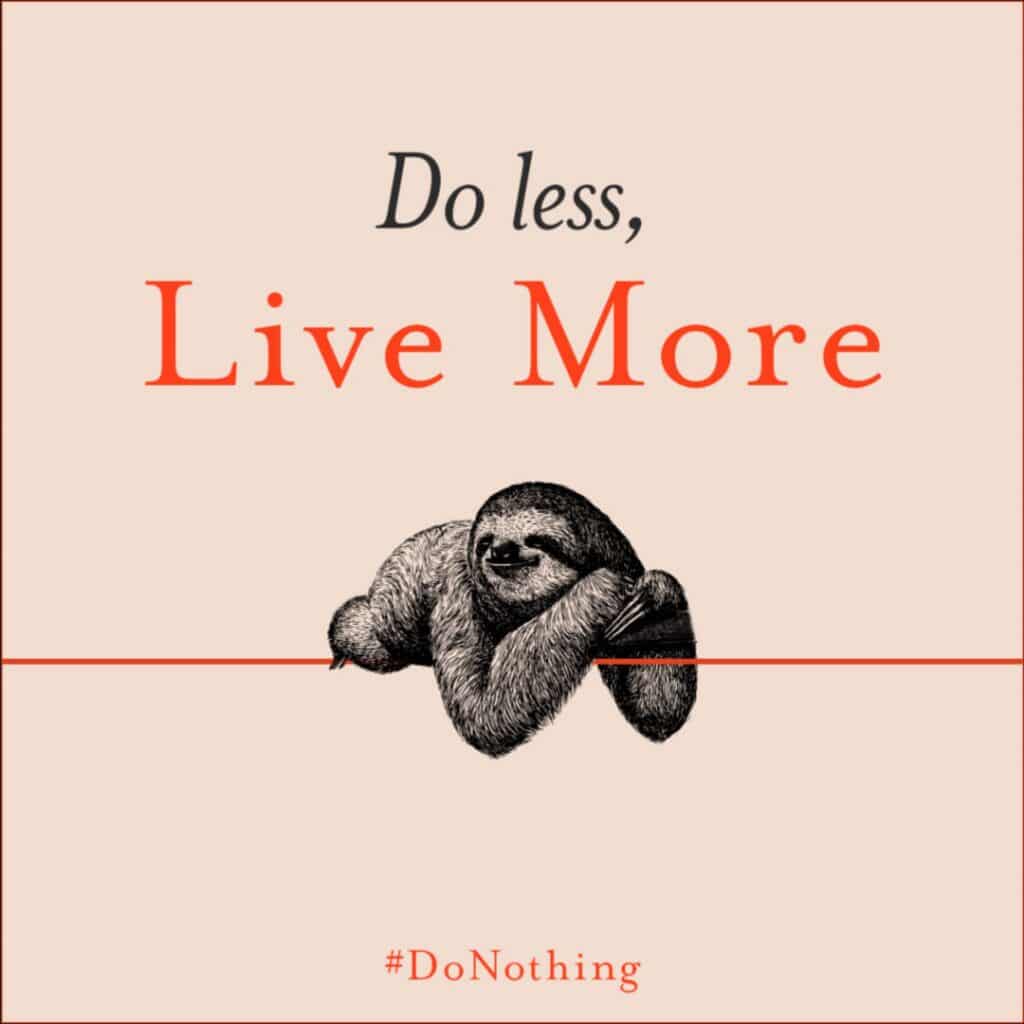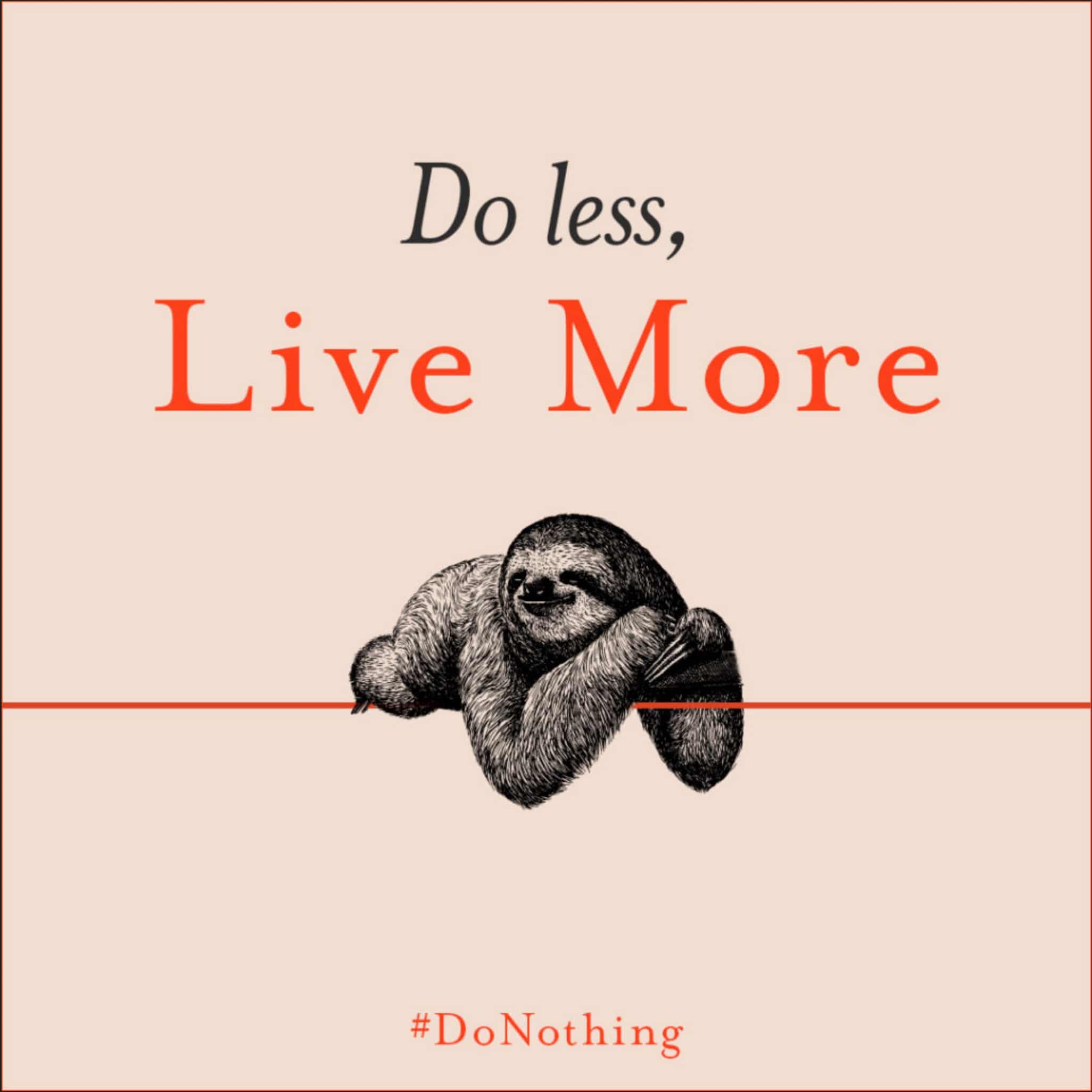An Excerpt from Celeste Headlee’s Latest Book, “Do Nothing”

Excerpted from DO NOTHING copyright © 2020 by Celeste Headlee. Used by permission of Harmony Books, an imprint of Random House, a division of Penguin Random House LLC. All rights reserved. No part of this excerpt may be reproduced or reprinted without permission in writing from the publisher.

We answer work emails on Sunday night. We read endless articles about how to hack our brains to achieve more productivity. We crop our photos and use filters before we post them on social media to earn approval. We read only the first couple paragraphs of the articles we find interesting because we don’t have time to read them in their entirety. We are overworked and overstressed, constantly dissatisfied, and reaching for a bar that keeps rising higher and higher. We are members of the cult of efficiency, and we’re killing ourselves with productivity.
The passage at the beginning of this Introduction was written in 1932, not long after the stock market crash of 1929, which caused the Great Depression. Russell’s description of the “cult of efficiency” predates World War II, the rise of rock and roll, the civil rights movement, and the dawn of the twenty-first century. More important, in my mind: It was written before the creation of the internet and smartphones and social media.
In other words, technology didn’t create this cult; it simply added to an existing culture. For generations, we have made ourselves miserable while we’ve worked feverishly. We have driven ourselves for so long that we’ve forgotten where we are going, and have lost our capacity for “light-heartedness and play.”
Here’s the bottom line: We are lonely, sick, and suicidal. Every year a new survey emerges showing more people are isolated and depressed than the year before. It’s time to stop watching the trend move in the wrong direction while we throw up our hands in despair. It’s time to figure out what’s going wrong.
All my life, I’ve been driven. That word has been used to describe me since elementary school.
Driven isn’t always a compliment, especially when it’s used to describe a woman. It’s not quite the same as ambitious, and it has a slightly different meaning than aggressive. Honestly, I think driven fits me fairly well. I’ve always viewed all forward progress as inherently virtuous and good.
Even as a child, I made long to-do lists in my daily planner (I had a daily planner by the ripe old age of twelve) and made sure I finished more tasks than I added every day. When I was dieting, I motivated myself by saying I would weigh less tomorrow than today, even if it was only by a fraction of an ounce. If I spent an afternoon watching monster movies on TV, I felt guilty. I was terrified that someone would see me sitting idly on the couch and call me lazy.
My drive has helped me succeed in life. It sustained me through single parenthood, layoffs, and physical injury. I’ve pushed myself to accomplish incredible amounts of work both at home and in my career. But at some point, drive became inextricably intertwined with dread: dread that all my work and effort would never be enough.
Eventually, I got lucky. I achieved much of what I wanted by the time I hit my forties, and I had time to stop, take a breath, and reexamine my way of life. While I’d always been driven, I’d also been exhausted, stressed, and overwhelmed. I assumed depletion was a natural side effect of being a single parent with multiple jobs and not enough money to cover all my expenses. My underlying assumption was that when I achieved financial stability, my stress would end.
That assumption, like so many assumptions, was wrong. My long-dreamed-of moment finally arrived a few years ago: I reached a level of stability that should have made me more comfortable, and I paid off my student loans (at last!). In fact, I paid off every debt I owed. I even had a respectable amount in savings and a real retirement account. I looked forward to nights of relaxation and relief. I expected to feel a lift, an easing of the stress I’d suffered for two decades, but that relief never came.
My daily planner (still an old-school one with paper pages) was as packed with tasks as it was before I’d paid off my debts, if not more so. My workload was as heavy with one job as it was when I had four. In the evenings, I was as worn out and exhausted as ever.
I realized it was not my circumstances that caused my stress but my habits. While my list of duties got shorter at the office, I found new duties to fill the empty space and called more meetings. At home, I decided I finally had time to make my own bread and learn Spanish. Instead of cooking the tried-and-true favorites in my recipe book, I searched the internet for new and exotic dishes that required an hour of driving in order to gather the ingredients. I agreed to serve on two advisory boards and chose to start writing a blog. And every week, I collapsed onto my couch on Friday night and thought about how I used to meet my friends for drinks, but now I didn’t have time.
I had some tough questions for myself. Why? Why do I do this? Why do any of us do this?
For the past several years, I’ve searched for the answer to those questions. Reading that eighty-seven-year-old essay from Bertrand Russell brought a flash of insight. I considered the fact that I did things rarely for their own sake, but in service to my drive to constantly improve and be productive. Far too many of us have been lured into the cult of efficiency. We are driven, but we long ago lost sight of what we were driving toward. We judge our days based on how efficient they are, not how fulfilling.
We search for the best method of doing everything, from holding meetings to exercising to barbecuing, and we are lured by the “ultimate tools” to improve our lives. We are like mechanics who build a car by assembling the top-of-the-line parts, focused only on finding the best of everything and not on whether those parts work well together. The end result is a car that struggles to start and keeps stalling out.
What is the cult of efficiency? It’s a group whose members believe fervently in the virtue of constant activity, in finding the most efficient way to accomplish just about anything and everything. They are busy all the time and they take it on faith that all their effort is saving time and making their lives better.
But they’re wrong. The efficiency is an illusion. They believe they’re being efficient when they’re actually wasting time.
Imagine that you need to learn how to swim. You read books on swimming, you buy a DVD series on the subject, you participate in a webinar about it. Maybe you install several apps on your phone that track your swim time and help you find the nearest pool. You do everything you can to learn how to swim except get into the water.
More and more, this is our approach to problem-solving.
We are investing our time and energy and hard-earned money in things we think will make us more efficient, but those things end up wasting our time, exhausting us, and stressing us out without bringing us closer to our goals. We take extraordinary measures to become more productive, only to become less so. Is there a good explanation?
The human drive to constantly improve and grow is innate and, in most ways, commendable. The modern human has been around for only about 300,000 years (compare that to the 66 million years or so that dinosaurs existed), and yet we’ve come a long way from the mud huts of the first Homo sapiens.
We have endured incredible hardship and unspeakable tragedy, but we developed a coping mechanism to prevent us from slipping into despair. It’s called the hedonic treadmill. It’s a tendency in our species to adjust our mood so that no matter what terrible things happen, we quickly return to the same level of happiness we enjoyed before the traumatic event.
There’s a catch, though: It also works in reverse. In other words, if an incredibly happy change occurs in our lives, we don’t move forward as happier people. Instead, the hedonic treadmill brings us right back to the state of mind we were in before the raise in pay, new house, or lost weight. It means that, for many of us, we are never satisfied.
Imagine you finally earn a million dollars. Euphoria ensues, right? Wrong. Your mind will adjust and send you right back to your happiness set point. As Dr. Alex Lickerman, author of The Undefeated Mind: On the Science of Constructing an Indestructible Self, explains, “Our level of happiness may change transiently in response to life events, but then almost always returns to its baseline level as we habituate to those events and their consequences over time.”
That makes us all vulnerable to those who promise more happiness and a better life through the use of their product, system, or software. We crave more joy and satisfaction. No matter what we achieve, no matter how many extra hours we work, we remain unfulfilled.